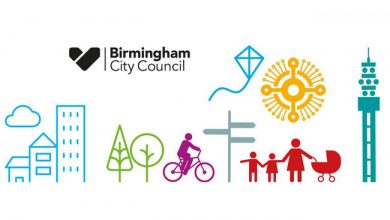West Midlands Combined Authority board to discuss Health of the Region report

Birmingham: A new report looking at the health of the West Midlands is to be discussed by political leaders next week.
The board of the West Midlands Combined Authority will be presented with the report ‘Health of the Region 2020: The regional health impact of Covid-19 on the West Midlands’ next Friday.
As well as the contents of the report, which has been produced by the WMCA in conjunction with public health officials, the board will also discuss what actions are being proposed by health and public sector organisations in response.
The report was originally commissioned before coronavirus struck, but the study was subsequently widened and extended so the true impact of the pandemic on the people of the West Midlands could be learned.
The report found that on many measures the health of the region is worse than the national average, and that Covid-19 had both exposed and exacerbated the relatively poor health of the West Midlands compared with the rest of the country. It also found that inequalities in health were inextricably linked to disparities in wealth.
Andy Street, the Mayor of the West Midlands, said: “This report makes clear that we cannot shy away from the fact there are significant health inequalities in our region that must be addressed.
“Clearly coronavirus has exasperated these inequalities, but this is a trend that has been going on for decades that we cannot allow to continue any longer. I am pleased that this work has included organisations from all over the region, who have now agreed to take immediate actions to begin bringing these historical inequalities to an end.
“I look forward to discussing these actions and how we move our region forward with council leaders and the rest of the WMCA board next week.”
Following months researching the health of local people, the report sets out some key ‘commitments to action’ on behalf of the WMCA and its partners, including local NHS organisations. These include:
- Bringing the region’s major health organisations together to set standards for addressing health inequalities
- The WMCA working with ethnic minority employers and their staff to develop a targeted mental health programme
- University Hospitals Birmingham addressing the current health screening backlog by using community diagnostic hubs in local neighbourhoods
- Health leaders for GP surgeries and clinics across the Black Country & West Birmingham Clinical Commissioning Groups (CCGs) recruiting 113 staff members by March 2021 to help improve mental health and wellbeing
- NHS and council social care organisations that make up the Birmingham and Solihull Sustainability and Transformation Partnership (STP) providing regular analysis of factors including ethnicity and deprivation to help guide future work to tackle health inequalities
The recommendations have been carefully shaped by the findings of the report which makes clear that those most affected by coronavirus tend to live in the poorest neighbourhoods and in overcrowded housing. They are also in low paid jobs.
Examining the impact of the pandemic on the region’s ethnic minorities, the report found they were disproportionately affected by Covid-19 in part because they have a higher chance of living in the poorest communities.
The report also found that the main causes of preventable death in the West Midlands were cancer and cardiovascular disease (both with rates higher than the national average) while cases of smoking, obesity, childhood obesity, alcohol dependency and physical inactivity were also higher than the national average.
Dr Lola Abudu, Deputy Director Health and Wellbeing Public Health England Midlands, said: “PHE’s Disparities Review highlighted the contribution of underlying health inequalities to the disproportionate impact of Covid 19 on some of our communities.
“I am therefore pleased that the Health of the Region 2020 report not only describes the challenges in the West Midlands, but highlight how, by working together, we can take practical steps to close the gap and improve the outcomes for local populations.”
WMCA portfolio lead for wellbeing and leader of Warwickshire County Council, Izzi Secombe, said: “The recommendations made in this report will help address the inequalities within our region.
“The health and wellbeing of everyone within our communities is important as we work towards the recovery of the West Midlands.”
The report was written by the Core Group members to the WMCA Regional Health Impact of COVID-19 Task and Finish Group.
Health of the Region 2020: The regional health impact of Covid-19 on the West Midlands will go before the WMCA Board on Friday (13 November) and complements the WMCA State of the Region report about the economy.





